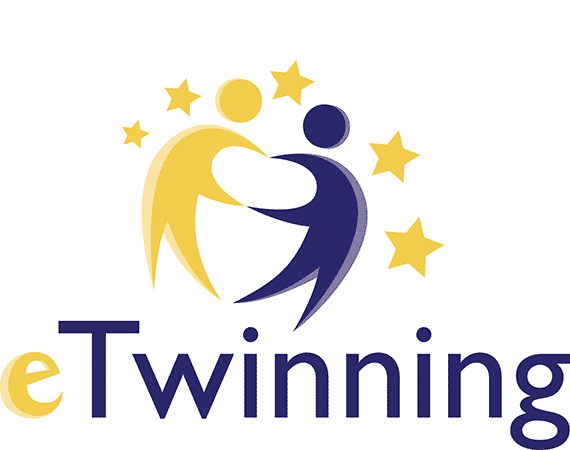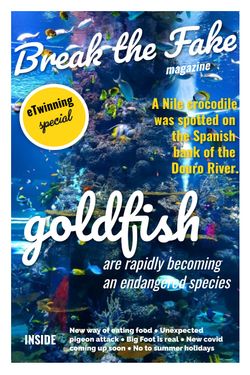O eTwinning é um projeto que disponibiliza uma plataforma para que os profissionais da educação (educadores de infância, professores, diretores, bibliotecários) de escolas europeias, possam comunicar, colaborar, desenvolver projetos e partilhar.É a maior comunidade de aprendizagem na Europa.
“Ao fazer parte do eTwinning, professores, alunos e diversos agentes educativos passam a fazer parte da "comunidade para as escolas da Europa" e a beneficiar de inúmeras oportunidades.
Os eTwinners podem estabelecer redes, partilhar e colaborar com outros eTwinners e escolas registadas, ligando-se através das funcionalidades de redes sociais oferecidas e participando em salas, grupos eTwinning e projetos europeus.
notícias
PROJETOS
Building our dream school together
The "Building our dream school together" project aimed to open a European civic empowerment space, involving several educational actors: students, parents, teachers and stakeholders, in building a school of all and for all. The founders' goal was to extend the local active citizenship promotion initiatives to a European/international scope. The eTwinner students were the main drivers of the project in the local educational community. They were part of the decision-making and implementation of the project in collaboration and communication with colleagues from the other partner schools. There was also the participation of the parents and guardians of eTwinner students and the partnership of Braga City Council and ABAE. This project was submitted as a candidate to the Gandhi Label (3rd Edition), whose theme this year is "Citizenship begins in us: transform education", with the endorsement of all partners.
Let's Manage Our Data
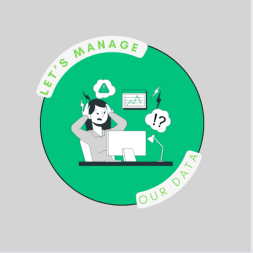
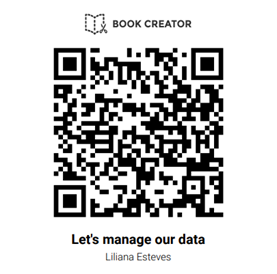
BREAK THE FAKE: MEDIA LITERACY AND DISINFORMATION
This year’s eTwinning theme focuses on two sides of the same coin: Media literacy, on one side, and how to tackle the phenomenon of disinformation and fake news, on the other. On the scope of Safer Internet Day and due to the extreme relevance of this theme – as we all know, during 2020, the first year of the corona pandemic, citizens were exposed to disinformation, which became one of the major challenges not only for adults but also for students: to acknowledge this phenomenon and know how to grasp it - this project aims to promote media literacy and tackle disinformation via many activities: from learning development opportunities to online events and workshops, engaging students, teachers, parents, and stakeholders.
Media literacy encourages young people to question, evaluate, understand and appreciate their multimedia culture. It teaches them to become active, engaged media consumers and users.
LANGUAGE MEDIATION THROUGH CULTURAL INTERPRETATION, COMPARATIVE ANALYSES AND ARTISTIC EXPRESSION
Difficulty in communicating may result from, among other factors, language- or terminological differences; lack of proficiency in the other language or register (for example, between speakers of different languages, or between experts in a given field and non-experts); cognitive gaps, i.e. unfamiliarity with certain concepts or processes (e.g. caused by insufficient access to education, low literacy, or cognitive development); lack of relevant information (e.g. about how to apply ); cultural differences (e.g. relating to concepts of politeness or punctuality); or disability (e.g. partial sightedness, hearing impairment). Thus mediation is a normal part of education, of most kinds of learning, and of life.
While linguistic communication is the most useful, the most frequently used and most versatile means of mediation, non-linguistic elements such as pointing/gestures, using signs (e.g. on roads) and drawing may also be useful ways of mediating information.
#Fluffypaws@HomeSweetHome
All living creatures have natural rights, and the denial of these rights causes serious damage to both the functioning of life and nature. Animals have been man's best friends for centuries. Especially cats and dogs have been a part of human life for a long time, but of course animal rights are not limited to the animals that live with us in our homes. Animals that survive in nature, whose right to life have been taken away or whose areas where they live have been destroyed also have rights and these rights should be defended by people. Because our animal friends do not have the chance to express themselves, to express their wishes by speaking, like we do. This is a reason enough for us to be more sensitive about defending their rights.
There are thousands of animals in shelters across our countries and all of them are waiting for a loving family. By adopting a “fluffy paws” companion people may encourage friends, relatives and colleagues to adopt too.
TrashArt
This project is on raising awareness of environmental problems and health such as the presence of microplastics in the ocean and food chain, the use of BPAs in the various plastic objects that coexist with us. Activities will focus on research and presentation of problems encountered. Proposing solutions for the reduction of use of the materials described above. It will also be a first awareness of the interconnection of environmental and health problems. Students will be encouraged to research on subjects, create presentations for project partners and try to propose solutions to reduce the presence of these materials together.
At the same time, they will collect waste in areas close to schools. With this material, they will create art objects that will be exhibited to the population.
DIGITAL COMPETENCES - MULTILATERAL ONLINE SEMINAR
This project is created to be the platform of DIGITAL COMPETENCES - MULTILATERAL SEMINAR - 14 - 16 October 2020, organized by the Bulgarian NSS. The participants of the multilateral seminar will take part in online presentation sessions as well as various workshops, all of them conducted by Bulgarian eTwinning Ambassadors.
The project will be the virtual workspace for all the activities to be taking place during the three days of the seminar.
LANGUAGE MEDIATION THROUGH CULTURAL INTERPRETATION, COMPARATIVE ANALYSES AND ARTISTIC EXPRESSION
Difficulty in communicating may result from, among other factors, language- or terminological differences; lack of proficiency in the other language or register (for example, between speakers of different languages, or between experts in a given field and non-experts); cognitive gaps, i.e. unfamiliarity with certain concepts or processes (e.g. caused by insufficient access to education, low literacy, or cognitive development); lack of relevant information (e.g. about how to apply ); cultural differences (e.g. relating to concepts of politeness or punctuality); or disability (e.g. partial sightedness, hearing impairment). Thus mediation is a normal part of education, of most kinds of learning, and of life. While linguistic communication is the most useful, the most frequently used and most versatile means of mediation, non-linguistic elements such as pointing/gestures, using signs (e.g. on roads) and drawing may also be useful ways of mediating information.
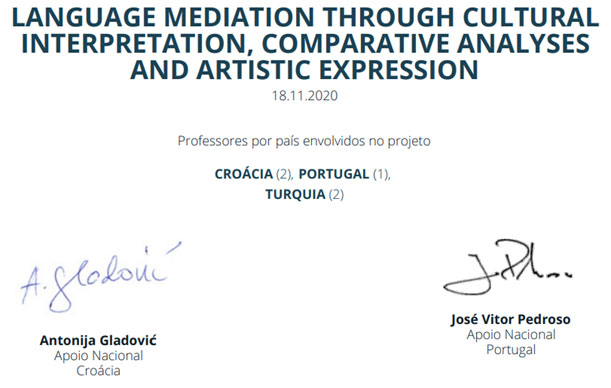
LET'S GO GREEN NO MATTER WHERE (ENVIRONMENT, WORK & SUSTAINABILITY)
The teaching and learning process is increasingly associated to a consistent basic training in areas that allow students to manipulate information and transform it into products and solutions. With this project we intend to bring together the curricular contents of several subjects, crossing them and providing them with meaning, promoting the development of critical thinking skills, giving students the opportunity to acquire the skills needed to meet the challenges of the current and future world.
Each partner group/group would develop learning activities related to environmental, consumerism and sustainability issues, applied to its area of vocational training (e.g.: rules on anti-pollution systems in the automotive industry, procedures for recycling electronic devices, etc.), sharing processes and experiences, looking for solutions to problems and finding potential in the unexpected.
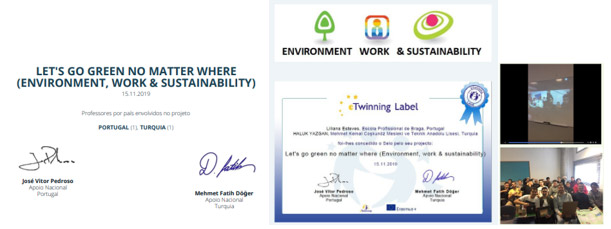
VÍDEOS
DIRETO Facebook
https://www.iha.com.tr/bursa-haberleri/ogrenciler-cevre-icin-pedal-cevirdi-2552253/
https://dai.ly/x7snob4
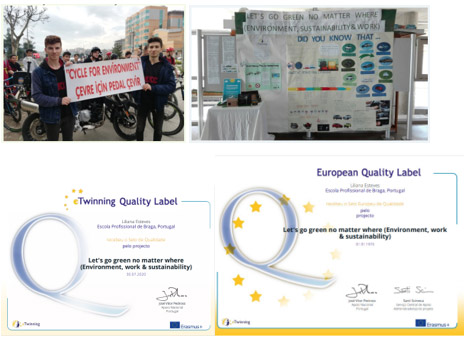
ECO FRIENDLY SCHOOLS
Through these projects we aim to develop some strategies to raise awareness of environmental issues and sustainable consumption on the educative community and also give them tools to become more active in reducing waste, their ecological footprint and their digital footprint, as well. We intend to teach our students to become more active in protecting the environment and responsible customers.
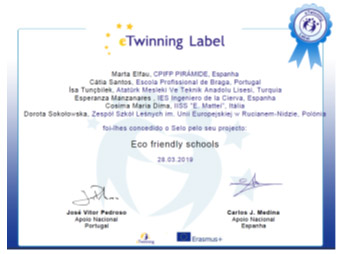
A PICTURE IS WORTH MORE …
Students build a story totally through images (using cutouts, internet images, drawings, ...). The story should be part of the culture of the country and will be selected by the students.The story will then be shared with national or international partners, who will try to translate it into words, through the drafting of a text.
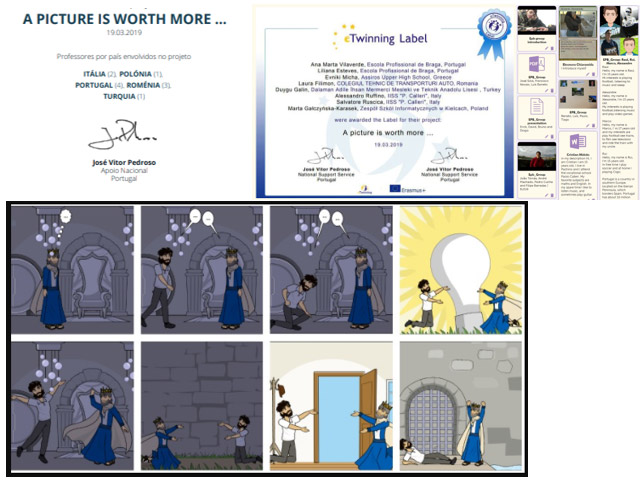
(DE)CODING CITY
The process of teaching and learning is increasingly related to a consistent training in areas that enable students to manipulate information and transform it into products and solutions. This can be done by developing and promoting computational thinking, which is absolutely necessary to effectively manipulate and use information, which requires a very diverse set of skills: abstraction, decomposition, pattern recognition and algorithms. This project aims to aggregate the curriculum contents of several subjects, relating them and giving them meaning, promoting the development of the students' critical and computational thinking skills, giving students the opportunity to acquire the necessary skills to face the challenges of the present and future world. Each partner will present their city (monuments and places of interest) using different tools (Virtual Reality, CoSpacesEdu, online simulators, etc.), sharing processes and experiences, finding solutions to problems and finding strengths in the unexpected.
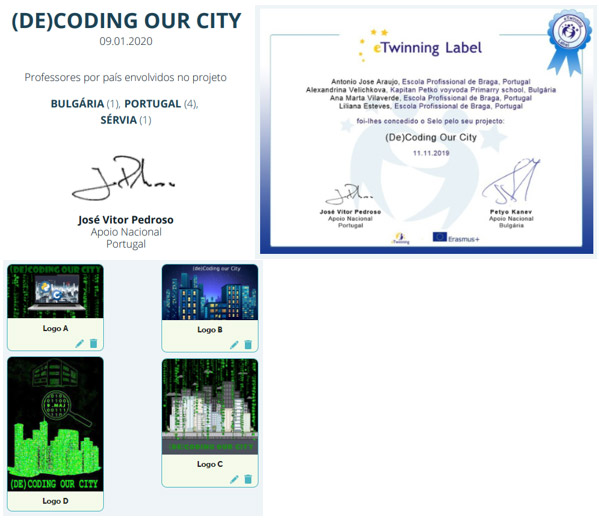
GENDER EQUALITY IN VOCATIONAL SCHOOLS
How is the society's perception of gender affecting girls choices of education? Engaging the students in figuring out why there is such a low attendance in vocational schools, and how we can make vocational schools more attractive for girls.
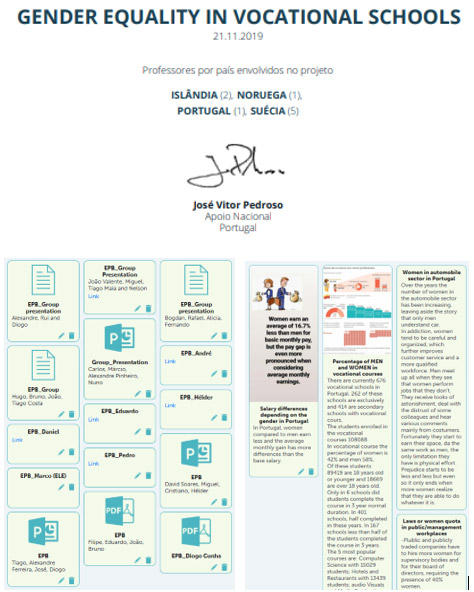
INTERNATIONALLY ON THE ROL
Students will be invited to keep an international story going by adding a sentence and passing it on to the next person. Each student will be able to use loose words from their own language and also add cultural information from their hometown. students can also add images to enrichen the story.
ACCEPT DIVERSITY, ACCEPT EVERYONE
Values like tolerance, respect, care, acceptance of other’s differences and openness to diversity are essential to become a citizen of the world. This is a project proposed by a group of students from a vocational school, which propose to explore que theme of bullying through storytelling, video making, subject-based website development and online talks.
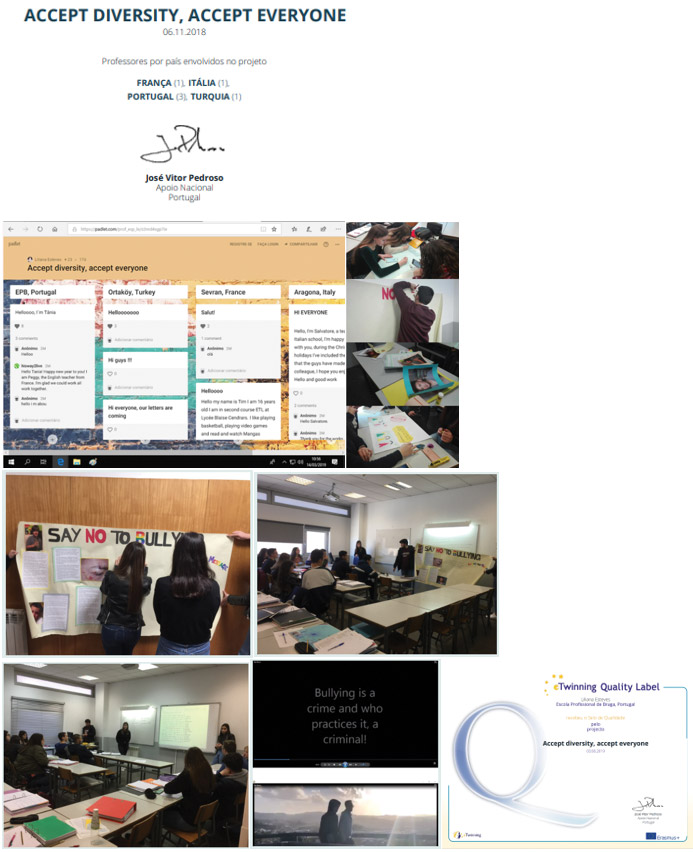
https://profesple.wixsite.com/accept-everyone
MY VACATION
Intercultural communication - try to understand one's cultural reality (related to "vacation") and compare it to someone else's, thus developing cultural awareness and competence.
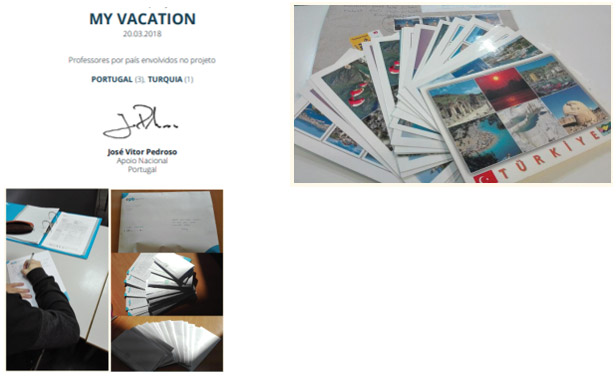
https://www.youtube.com/watch?v=wIoFeXG5Oek&feature=youtu.be

